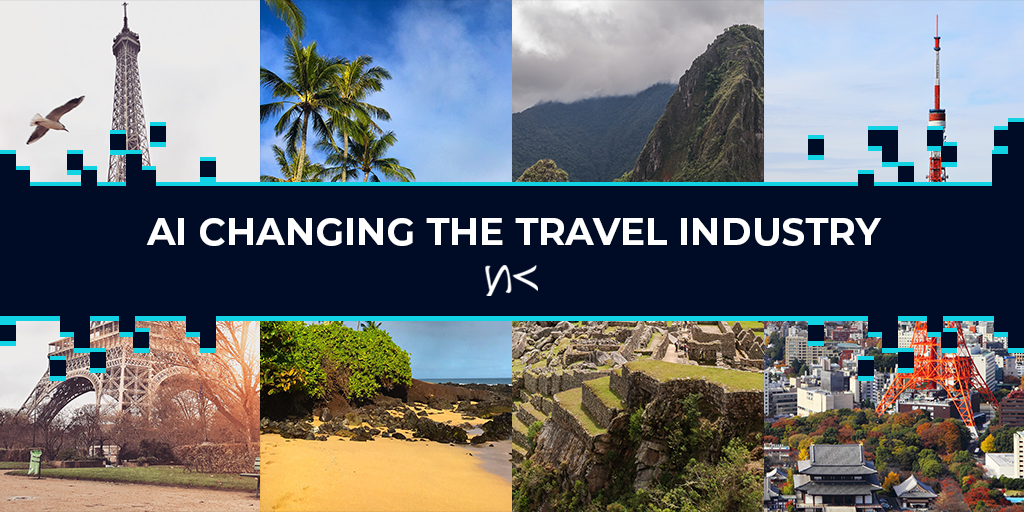
The Travel Industry and COVID-19
The global travel and tourism industry is estimated to be worth around $2.9 trillion (2019). Travel has become more accessible to everyday people over the past few decades. The ability to travel and visit different countries has gone from a luxury saved for the very privileged few to an activity that more and more people can enjoy as airfare and lodging have become cheaper and more accessible. Many communities have also built their local economies on travel, with tourism being a significant source of income for them. The United States alone contributed approximately $580.7 billion to global tourism’s GDP. But like many industries in the year 2020, traveling and tourism took a nosedive due to a worldwide pandemic.
Traveling and COVID-19
The global COVID-19 pandemic has put a dent in many of our plans for 2020. The novel coronavirus or COVID-19 is a particularly contagious virus that is around ten times deadlier than the flu. The long-term effects that the virus will have on the health of those who have caught it is yet unknown, but many who have caught it and ‘survived’ have reported long-term lung, brain, and heart conditions, among other things. To combat the virus and stop the spread, almost every country on earth has restricted travel to their regions. And within each country, there are varying degrees of quarantine taking place to reduce the number of people exposed to the coronavirus from increasing. As a result, many industries took a great economic hit because of this and the global travel and tourism industry was hit particularly hard. Without a vaccine for COVID-19, traveling is risky. Airlines have had to reduce the number of people allowed to board flights to fight the spread. Hotels have also been advised to reduce the capacity to fill their buildings to ensure proper distance is being kept between customers.
But hope is on the horizon as several vaccines have entered their final testing phases and could be widely distributed as soon as the end of 2020. If the vaccines prove effective and enough of us receive them, we can significantly reduce the number of COVID-19 infections globally. Furthermore, once COVID-19 is under control, the travel and tourism industry will likely experience a boom as people globally look to leave their homes and explore the world again. If this is the case, Artificial Intelligence may help make travel and tourism easier, affordable, and profitable.
AI and Travel and Tourism
AI intelligence can greatly benefit the travel and tourism industry by helping automate and streamline tasks traditionally done by humans and reducing the amount of human error that occurs with these tasks. By automating work and simplifying the process, businesses can save money and utilize their freed-up time to make traveling more accessible and more convenient.
Customer service within the travel and tourism industry has been vastly improved since its introduction. Hotels, airlines, and automobile services regularly deal with many customers every day, and it can be hard to deliver the best customer service when employees are swamped with work. With the advent of social media and instant messaging, customers are even more eager to receive quick and satisfactory information in shorter and shorter time frames. While a single human can’t field hundreds of thousands of customer questions instantly, it is an easy task for a chatbot. Chatbots are AI-powered machines commonly used by many businesses to improve customer service by providing quick and accessible knowledge to customers’ frequently asked questions. A chatbot can be programmed to learn customer habits by analyzing common patterns in humans when using an app or website or when on social media. With the information the chatbot collects, it can learn to give answers to frequently asked questions.
AI can also be used to improve face-to-face interaction as well. Like a chatbot that can be accessed through social media or an app and utilized to answer customer questions, it is possible to build a robot to do the same tasks in person. For hotel operators and tourism agencies, a robotic helper could help reduce the workload on employees, allowing employees to focus more on quality regarding the customer service they provide. A robot can be programmed to understand speech, recognize specific questions, and deliver accurate information to these questions in response. Though we are still awaze away from having fully automated hotels, AI-powered robots that accompany and help receptionists are already here. The Hilton has already deployed such kinds of robots with its pilot program that it has started with IBM.
AI is not meant to replace human judgment but rather become another tool that we can use to improve our lives and our business operations. Only time will tell how these machines will improve the tourist experience, but the future looks promising.



